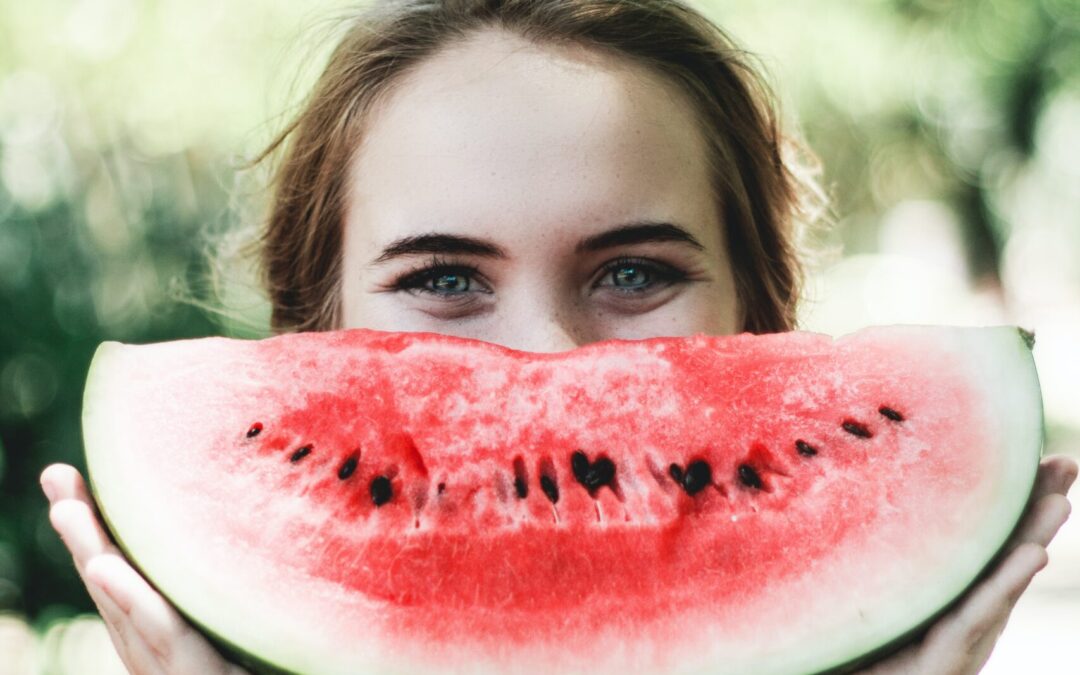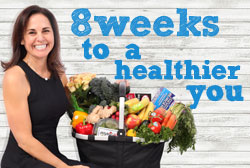Given the state of our world today with COVID, we need to be hyper aware of our health and keeping our immune system strong, so make sure you know the key vitamins your body needs to thrive.
What exactly are vitamins?
The word vitamin is often used as a catch-all term including minerals, fatty acids, and the actual vitamins humans require. Basically vitamins are organic compounds your body needs to perform all of its essential functions. Some of the functions include regulating hormones, growing tissues, and maintaining a healthy immune system.
How can I make sure I get all the vitamins I need?
In this article I outline various vitamins that you can get from foods. I hope this will encourage you to rethink your food choices to include a rainbow of colors from vegetables and fruits along with lean organic protein sources.
While vitamins are typically best when they come from food, it’s not always easy to eat everything your body needs. Depending on your diet and lifestyle, you may choose to add supplements to your diet. If you go this route, please know that not all supplements are created equal. A lot of supplements that are available in stores have fillers and binders. I turn to the professional-grade brands available on Fullscript to get top-quality supplements delivered to my door. Click here to create an account and shop my favorites catalog.
To help you decide which supplements you need, you can also consider getting a micronutrient test such as the NutrEval Test to see how well you are absorbing your nutrition and to see what your body may be lacking (contact me for more information).
Without further adieu…
Here are 17 vitamins our bodies need that you should have in your diet:
- Magnesium – This mineral plays an important role in muscle contractions. It is also a natural muscle relaxant and can help smooth muscles, including your intestines. It also helps another essential vitamin, calcium, to absorb. It can be found in natural sources such as spinach and other leafy greens, almonds and beans.
- Calcium – This mineral is very essential for bone and teeth health. Some natural sources for this mineral are dairy milk and fortified plant-based milks including almond and cashew milk.
- Vitamin C – This water-soluble vitamin plays important roles in immune system function. It is also an antioxidant, which means it helps neutralize free radicals that are believed to cause aging of cells. Orange juice, cherries, red peppers, kale, and grapefruit are some examples of foods where this popular vitamin is found.
- Vitamin B-12 – This is one of the most important essential vitamins. It is a co-enzyme that is vital in the conversion of food to be used as energy. The most effective way to get Vitamin B12 is through foods such as beef, chicken, fish, eggs and fortified breakfast cereals, but it is also widely available in many forms such as pills, liquids, and even injections.
- Vitamin B6 – Men age 51 and older should aim for 1.7 mg and women 1.5 mg each day. The richest sources of Vitamin B6 include fish, beef liver, potatoes and other starchy vegetables, and fruit (except citrus).
- Vitamin B1 (Thiamin) – In individuals over 50, men should aim for 1.2 mg and women 1.1mg each day. You can find vitamin B1 in meat – especially pork – and fish. It’s also in whole grains and some fortified breads, cereals, and pastas.
- Vitamin B2 (Riboflavin) – You can find vitamin B2 in eggs and organ meat, such as liver and kidneys, and lean meat. You can also find it in green vegetables, like asparagus and broccoli.
- Vitamin B3 (Niacin) – Men over 50 should aim for 16mg daily and women over 50 should aim for 14 mg daily. Vitamin B3 can be found in some types of nuts, legumes, and grains. It can also be found in poultry, beef, and fish.
- Vitamin B9 (folate/Folic Acid) – Most men and women over 50 should aim for 400mcg DFE daily. Folate can be found in vegetables and fruit, such as broccoli, Brussel sprouts, spinach, and oranges. It can also be found in nuts, beans, and peas.
- Omega-3 – Omega-3 is the beneficial fatty acid found in fish, fish oil, Algal oil or hemp seeds. Foods containing it are consumed for their reported role in cardiovascular health, brain function, and mood.
- Vitamin D – This vitamin is important for bone and colon health. Your body generates it when your skin is exposed to sunlight. In today’s high-tech world, many people spend time away from the sun and thus supplement vitamin D3 to ensure healthy levels. Foods containing it include broccoli, egg yolks, cereals, and fatty fish.
- Iron – This metal is responsible for the red color of your blood. Iron deficiency, known as anemia, has been associated with autoimmune disorders like lupus. Foods containing iron are clams, liver, beans, and spinach. Using a cast iron skillet to cook your food in will help you get more iron. I have read that you get 6-8mg of iron added to foods such as eggs, apple sauce or pasta sauce.
- Potassium – Potassium is an electrolyte (like magnesium and calcium) that plays a role in keeping your body well-hydrated. Potassium is an important supporter of blood pressure. Many Western diets are low in potassium. Unfortunately, potassium cannot be easily supplemented due to a rule that limits the amount that is sold in over-the-counter tablets and capsules. Because of this, finding natural sources such as vegetables and fruits (like bananas, citrus, and spinach) is vital.
- Vitamin A – This fat-soluble vitamin is often found in carrots and other similarly pigmented vegetables. It can also be found in meat, especially liver. Also known as a carotenoid, it is known to be good for your eyes and assists in fighting chronic diseases.
- Co-Q10 (also known as Ubiquinol) – Ubiquinol is a co-enzyme that is often taken for heart health. Co-Q10 helps to increase blood oxygenation and is also potent anti-oxidant. Food sources include liver, peanuts, shellfish, beef, legumes, spinach, broccoli and cauliflower. Adding Co-Q10 in supplement form to help combat oxidative stress.
- Vitamin E – Men and women over 50 should aim for 15 mg each day. You can find Vitamin E in nuts such as peanuts and almonds. It can be found in Vegetable oils and green vegetables such as broccoli and spinach.
- Vitamin K – Men over 50 should aim for 120mg daily and women in the same age bracket 90mg. daily. Vitamin K can be found in many foods including green leafy vegetables, like spinach and kale and in some fruits, such as blueberries and figs. It can also be found in cheese, eggs, and different meats.
It’s Time to Make a Plan!
Now that you know which foods are rich with the vitamins your body needs to thrive, consider the ways you incorporate more of these foods into your diet. Can you eat more salad? Can you meal prep so you make healthier choices throughout the week?
As you read through the list, which vitamins are you concerned about not getting enough of through your diet even if you are more intentional about what you eat? Consider getting these vitamins through supplements.
Click here to shop all my favorite high-quality supplements from professional grade brands.
Create an account, then click Catalog, choose Simple+Well Favorites, do your shopping and get them delivered straight to your door!
Additional Reading: For more information on Vitamins and Minerals, here is an article that outlines supplements that we need as we age.



